 Time for Weekly Geeks again. I skipped last week because it was on your favorite childhood books and, frankly, my memory stinks. All I can remember is reading...A LOT...what did I read? No idea. So, there you have it.
Time for Weekly Geeks again. I skipped last week because it was on your favorite childhood books and, frankly, my memory stinks. All I can remember is reading...A LOT...what did I read? No idea. So, there you have it.
But this week, Dewey's assignment for us Geeks was to pick a political or social issue that matters to us and blog about it. And, because we are all rabid readers, we should find some books that address the issue.
I toyed with talking about the environment, but Debi at Nothing of Importance, Kristen of Book Club Classics, Samantha at Bookworms and Tea Leaves, Melissa of Book Nut, and Susan at You Can Never Have Too May Books seem to have everything from biodiversity to buying local and going green covered. If you're interested in any of these topics, you may want to cruise on over to their blogs and check out their book lists. Several of their picks made it on to my wish list. I'm sure that surprises you ;>).
I also totally agree with Puss Reboots' take on LGBT rights, Nymeth's ideas about the ever narrowing definition of normal at Things Mean A Lot, Misa's wonderful post about childless-by-choice at This Redhead Reads, and Becca's thoughtful missive on consumerism in American culture at The Inside Cover. All creative slants on the same assignment that I wish I'd come up with.
Having said all that, ultimately, having worked as a science educator for more years than I'd care to admit, the decision to focus on science literacy in America wasn't really a hard one. Here's the thing, many of the political, environmental, and social issues facing America and the rest of the world (biodiversity, biofuels, fossil fuels, alternative energy, global warming, embryonic stem cell research, genetic engineering, gene therapy, health care, HIV/AIDS, pollution, abortion, just to name a few) have an underlying scientific principle. Without a basic understanding of the science behind these issues, how can people possibly understand, much less form an informed opinion, about what should and should not be done about them?
I am concerned that not only are the people in positions of power today scientifically illiterate, but that our young people are also not getting the eduction they need to lead our country (and world) into a better political, environmental, and social position.
So here are the books:
----------------------------------------------------------------------------------------------
I read Carl Sagan's The Demon-Haunted World: Science As A Candle in the Dark when I was in college and remember liking it a lot.
Barnes & Noble.com synopsis:
How can we make intelligent decisions about our increasingly technology-driven lives if we don't understand the difference between the myths of pseudoscience, New Age thinking, and fundamentalist zealotry and the testable hypotheses of science?
Casting a wide net through history and culture, Sagan examines and authoritatively debunks such celebrated fallacies as witchcraft, faith healings, demons, and UFOs. And yet, disturbingly, in today's so-called information age, pseudoscience is burgeoning, with stories of alien abduction, "channeling" past lives, and communal hallucinations commanding growing attention and respect. As Sagan demonstrates with lucid eloquence, the siren song of unreason is not just a cultural wrong turn but a dangerous plunge into darkness that threatens our most basic freedoms.
------------------------------------------------------------------------------------------------Here are a few new-to-me books I'd like to peruse:
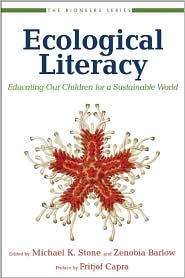
Ecological Literacy: Educating our Children for a Sustainable World by Michael K. Stone (published: 2005)
Barnes & Noble.com synopsis:
Our efforts to build a sustainable world cannot succeed unless future generations learn how to partner with natural systems to our mutual benefit. In other words, children must become “ecologically literate.” The concept of ecological literacy advanced by this book’s creators, the Center for Ecoliteracy in Berkeley, California, goes beyond the discipline of environmental education. It aims, says David Orr in his foreword, “toward a deeper transformation of the substance, process, and scope of education at all levels”—familial, geographic, ecological, and political.
The reports and essays gathered here reveal the remarkable work being done by the Center’s network of partners. In one middle school, for example, culinary icon Alice Waters founded a program that not only gives students healthy meals but teaches them to garden—and thus to study life cycles and energy flows. Other hands-on student projects described here range from stream restoration and watershed exploration to confronting environmental justice issues at the neighborhood level.
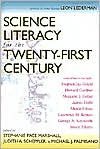
Science Literacy for the 21st Century (published: 2002) Editors of this book gathered 30 essays about the need to increase science literacy in US schools, colleges, and among the general population.
Designs for Science Literacy by American Association for the Advancement of Science (pub: 2001) The AAAS's recommendations for science education reform.
Science Matters: Achieving Scientific Literacy by Robert M. Hazen (published: 1990) - 18 essays on chemistry, physics,
geology, astronomy and biology help readers comprehend today's science news. This sounds like a great book, but because it was published in 1990, I'm sure it needs a major update. Still, could be interesting.
------------------------------------------------------------------------------------------------
And least you think that science literacy needs to be dull, you really should check out Larry Gonick's Cartoon Guides to...series. I used his Cartoon Guide to Genetics in conjunction with my college textbooks to help me understand the basics of DNA transcription and translation. The illustrations were extremely helpful (not to mention funny which = memorable).
Other books in the series include:
Cartoon Guide to Physics by Larry Gonick
Barnes & Noble.com synopsis: If you think a negative charge is something that shows up on your credit card bill -- if you imagine that Ohm's Law dictates how long to meditate -- if you believe that Newtonian mechanics will fix your car -- you need The Cartoon Guide to Physics to set you straight.
The Cartoon Guide to the Environment by Larry Gonick
Synopsis from B&N.com: Do you think that the Ozone Hole is a grunge rock club? Or that the Food Web is an online restaurant guide? Or that the Green Revolution happened in Greenland? Then you need The Cartoon Guide to the Environment to put you on the road to environmental literacy.
And, last but not least, The Cartoon Guide to Chemistry by Larry Gonick.
------------------------------------------------------------------------------------
Other bloggers concerned with education reform with great book lists include:
Go check 'em out!
Kristi







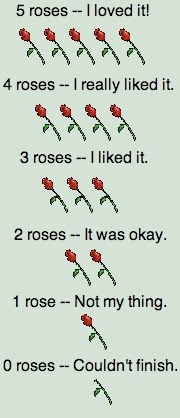




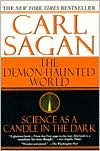
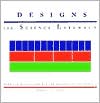
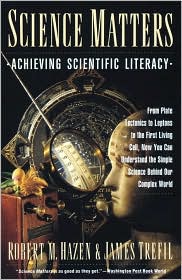

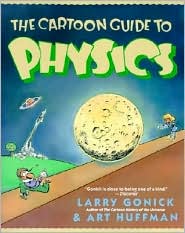











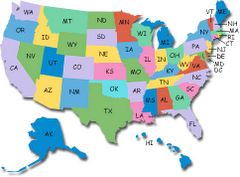




14 comments:
Great post. I actually own a copy of The Cartoon Guide to Physics but it has been years since I've read it. I should dig it out of storage and reread it.
As an English teacher, I particularly appreciate your list of Cartoon Guides . . . and I must say that Stephen Jay Gould is the only writer who has made true science understandable to me - so I'll have to check out these to increase my own science education. Thanks.
Demon Haunted World is actually the first book I read by Sagan, which led me to read a lot of his other stuff. Great post. Now I'm expanding my TBR list!
"Without a basic understanding of the science behind these issues, how can people possibly understand, much less form an informed opinion, about what should and should not be done about them?"
Well said. Great topic and great post.
The Cartoon Guides are excellent. You might want to check out another science book I'm reading right now (darn, I forgot to add it!), Bill Bryson's A Short History of Nearly Everything. It's excellent! Very readable and highly entertaining. He not only explains the science so that everyone can understand it, he tells stories about the scientists behind the discoveries, too.
I live in what may be the most scientifically literate town on the planet, but I myself am not as informed as I would like to be about many aspects of science. I really love the look of those cartoon guides. Do your students enjoy those? They seem like they'd be really appealing to kids.
Unfortunately, I never got a chance to use them in the classroom. Now that I'm writing science books for kids, I can't use them because Mr. Gonick is using them in his books. Darn the man ;>). Seriously, I still use them to make sure I have a concept straight in my head before I attempt to explain it in my own books. Pictures really work for me ;>).
i'm putting the Carl Sagan on my to-read list. i've already got A Short History of Nearly Everything on that list. the cartoon guides look like a lot of fun; i'm going to point them out to my son.
What a great list! You're right, this is a huge issue. I'd like to read the "Science literacy for the 21st Century". Sounds like it would cover a lot.
There's a blog I read a lot, Bearcastle, which also runs a company called Ars Hermeneutica, focused on scientific literacy in America. Jeff is also hosting the Science Book Challenge which I'm part of even though I haven't reviewed a single book for it yet!
What a great post!! I picked up A Short History of Nearly Everything from the library just last week. But I haven't had the time to start it!!
Hi, I must have missed this post last week. and I really enjoy your blog (first time visit, I think.) YES, important topic!
Melanie - Thanks for pointing me in Bearcastle's direction. I have my own personal perpetual science challenge going on, but I may just join his, too ;>).
Stephanie & Alisonwonderland - Come back by and let me know what you think of Short History. I'm up to chapter 14 and I'm still enjoying it!
Bkclubcare - Thanks for stopping by!
Great post! I think science is very important to understand. Great topic.
What a great idea for a topic! I just went to a lecture about science journalism that talked about how science news ends up being dumbed down and sensationalized before the average person gets to look at it from their newspaper stories. I think that ties to your point that people need to understand science in order to think critically about important modern issues.
Kim
Post a Comment